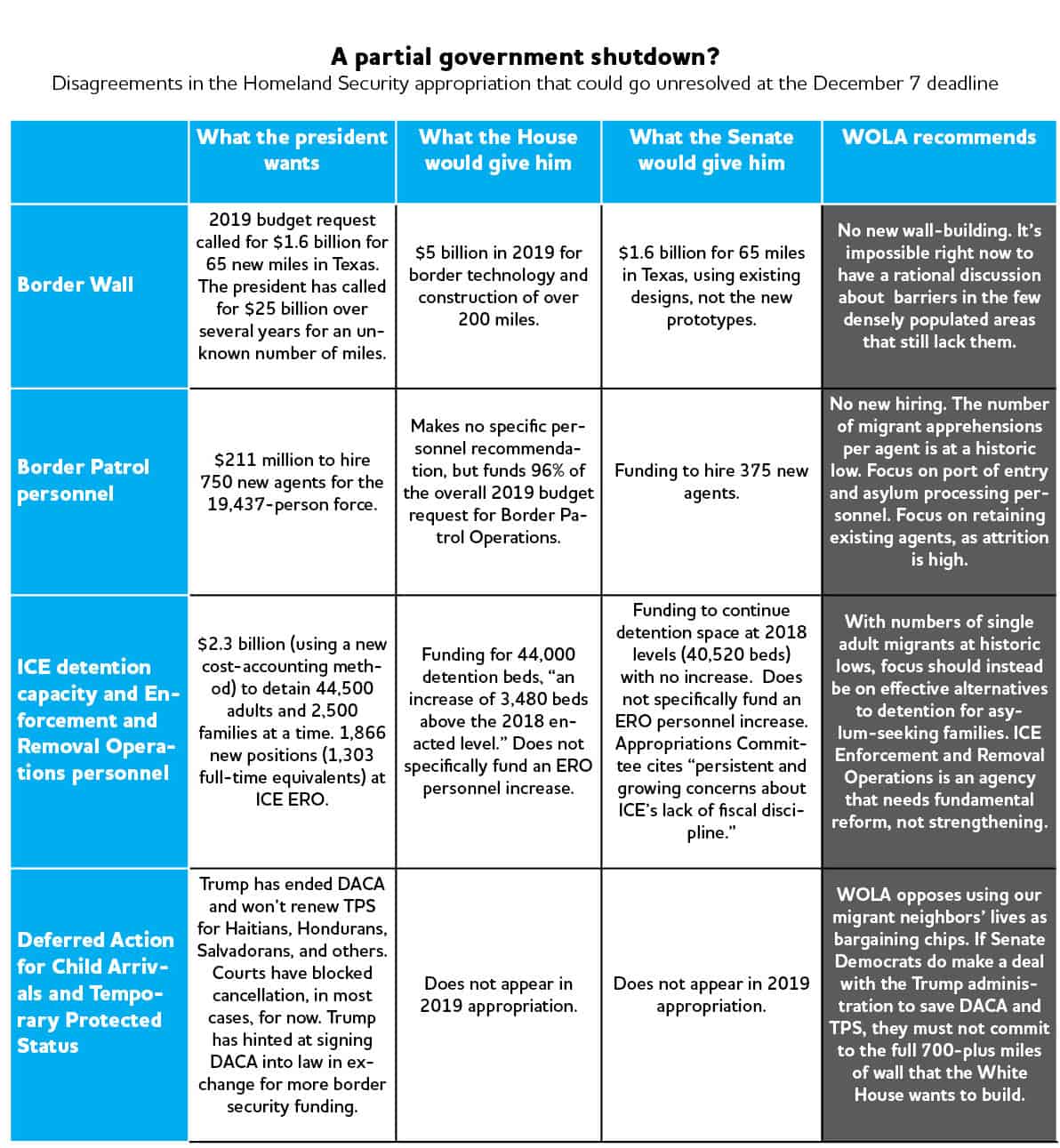If Congress and the White House don’t agree on a budget by December 7, a date that may be extended until later in the month, a pre-holiday government shutdown will hit the Departments of Agriculture, Commerce, Homeland Security, Housing and Urban Development, Interior, Justice, State, and Transportation.
Most of the controversy centers on the Homeland Security appropriation. President Trump is hinting that he may not sign a 2019 budget bill unless it includes a gigantic outlay to build a wall along the border with Mexico. (The Homeland Security Department’s budget request, issued in February, asked for $1.6 billion for 65 miles of border barrier. The president has separately asked for $25 billion over several years.)
As the graphic below shows, there are several big disagreements concerning the Homeland Security bill that could result in a partial shutdown. (Click on the image to enlarge it).
The president doesn’t have the votes for that. Senate rules require that 60 out of 100 senators vote to stop debate and begin voting on a bill. Nine Democratic members would have to agree to move to a vote. They will not do that to give Trump his “wall.”
Some Democrats might go along if they got some major concessions in return, like agreement from the president to sign a law granting legal status for “dreamers” and Temporary Protected Status recipients, as well as greater clarity and more resources for processing asylum-seekers without detention. But this is up in the air: nobody, not even legislative leaders, knows what is going to happen.
WOLA thinks the demand to throw many billions at a border wall is ridiculous. The per-mile cost of wall-building could be put to so many better uses. Migration at the border is near 45-year lows, and U.S. border communities are some of the safest in America. The main crisis today is humanitarian, not security-related: what to do about an unprecedented exodus of children and families fleeing Central America. The 2019 budget battle isn’t even touching this issue. Let’s get this “wall” distraction out of the way and, starting with the 116th Congress, have a serious, rational discussion of what’s truly needed at the border and how to address it.


